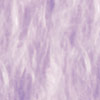I wonder if NeilMed would pay to test their product against a neti pot?
Nasal Irrigation Bests Saline Sprays for Stuffy Nose
By Crystal Phend, Staff Writer, MedPage Today
Reviewed by Zalman S. Agus, MD; Emeritus Professor
University of Pennsylvania School of Medicine.
November 19, 2007
add your knowledge 4 Add Your Knowledge™ Posts Additional Allergy Coverage
Melissa Pynnonen, M.D.
University of Michigan Health System
Ann Arbor, Mich.
ANN ARBOR, Mich., Nov. 19 -- For chronic rhinitis, nasal irrigation may clear sinuses substantially better than a saline spray, suggested a comparison of what has been assumed to be equivalent treatments.
Flushing the sinuses with salt water about doubled short-term improvements in symptom severity and frequency compared with saline spray, reported Melissa A. Pynnonen, M.D., of the University of Michigan here, and colleagues in the November issue of the Archives of Otolaryngology -- Head & Neck Surgery.
"The irrigations help people significantly," Dr. Pynnonen said. "The amount of improvements people get is similar to the amount of improvement that patients with chronic sinus and nasal problems get after sinus surgery."
The results suggest irrigation may be ready to move beyond the otolaryngologist's armamentarium into primary care, the investigators said.
Both irrigation and sprays have been used as adjuvant treatments to medical therapy for allergies and other chronic nasal and sinus conditions. But "nasal saline sprays are often used as an alternative to saline irrigations because saline spray is often perceived to be equivalent to and better tolerated than irrigation," the researchers said.
So the researchers conducted a randomized, controlled trial comparing the two methods in 121 adults with chronic nasal and sinus symptoms, such as nasal stuffiness and thick nasal discharge. Symptoms were similar between groups at baseline.
Participants were taught how to use nasal irrigation or nasal saline spray and continued treatment twice daily for eight weeks in addition to their usual medications.
Symptom scores improved in both groups during treatment (P<0.001 at weeks two, four, and eight), but the irrigation group consistently scored better than the saline group. The symptom severity changes from baseline were, respectively:
* 12.2 versus 6.7 points on a 100-point scale at two weeks (P=0.05).
* 16.2 versus 7.4 points at four weeks (P=0.002).
* 15.0 versus 8.5 points at eight weeks (P=0.04).
Symptom frequency also improved more in the irrigation group. Whereas almost all patients (93% to 95%) reported nasal or sinus symptoms "often or always" at baseline, only 40% of the irrigation group compared with 61% of the spray group reported the same at week eight (adjusted odds ratio: 0.49, absolute risk reduction: 0.2, P=0.01).
So the number needed to treat with saline irrigation was five to reduce symptom frequency and seven to have a clinically significant, 16-point or greater improvement in symptom severity.
Adverse events, most commonly nasal drainage after treatment, were similar between groups. Use of other medications, whether prescription or over-the-counter, was likewise similar between groups throughout the study.
However, compliance with irrigation dropped over time compared with the spray (92% versus 97% at week two, 81% versus 93% at week four, and 79% versus 93% at week eight, P=0.03).
While the researchers called the 79% compliance high, they added that it "suggests that our results are a conservative estimate of the true benefit of irrigation therapy."
These benefits compared with saline spray could "be due to greater volume, increased delivery pressure, and mechanical debridement achieved with irrigations," Dr. Pynnonen and colleagues said.
Whatever the mechanism, the findings are likely generalizable to the millions of patients with nasal and sinusitis-like symptoms seen in primary care every day, they said.
Furthermore, the magnitude of improvements with nasal irrigation (range 12.2 to 16.2 points) was not substantially different from improvements seen with sinus surgery (19 to 22 points) in one study and was greater than that with oral prednisone (10 points) in another.
"This finding is even more remarkable given the nominal cost and minimal risk of this saline intervention," they wrote.
The study was supported by NeilMed Pharmaceuticals, which makes the Sinus Rinse product used in the study.
Additional Allergy Coverage
Primary source: Archives of Otolaryngology -- Head & Neck Surgery
Source reference:
Pynnonen MA, et al "Nasal saline for chronic sinonasal symptoms: a randomized controlled trial" Arch Otolaryngol Head Neck Surg 2007; 133: 1115-1120.
Nasal Irrigation Bests Saline Sprays for Stuffy Nose
Nasal Irrigation Bests Saline Sprays for Stuffy Nose
Rooster
I have a vision that we will figure out an easy way to ensure that children develop wide, deep, healthy and attractive jaws and then obstructive sleep apnea becomes an obscure bit of history.https://www.youtube.com/watch?v=0ycw4uaX ... re=related
I have a vision that we will figure out an easy way to ensure that children develop wide, deep, healthy and attractive jaws and then obstructive sleep apnea becomes an obscure bit of history.https://www.youtube.com/watch?v=0ycw4uaX ... re=related
- Perchancetodream
- Posts: 434
- Joined: Mon Aug 13, 2007 7:41 pm
- Location: 29 Palms, CA
Thanks for posting this article, Rooster!
I have been on the fence about using irrigation for some time now, even going to far as to order the Nasopure system which looks easier to use than the Netipot. Looks like I should start using it.
Thanks again,
Susan
I have been on the fence about using irrigation for some time now, even going to far as to order the Nasopure system which looks easier to use than the Netipot. Looks like I should start using it.
Thanks again,
Susan
"If space is really a vacuum, who changes the bag?" George Carlin
Susan,Perchancetodream wrote:Thanks for posting this article, Rooster!
I have been on the fence about using irrigation for some time now, even going to far as to order the Nasopure system which looks easier to use than the Netipot. Looks like I should start using it.
Thanks again,
Susan
After you use Nasopure for a while let us know how you like it.
BTW, I find a neti pot very easy to use and simple to keep clean.
Thanks,
Roost
Rooster
I have a vision that we will figure out an easy way to ensure that children develop wide, deep, healthy and attractive jaws and then obstructive sleep apnea becomes an obscure bit of history.https://www.youtube.com/watch?v=0ycw4uaX ... re=related
I have a vision that we will figure out an easy way to ensure that children develop wide, deep, healthy and attractive jaws and then obstructive sleep apnea becomes an obscure bit of history.https://www.youtube.com/watch?v=0ycw4uaX ... re=related
- LavenderMist
- Posts: 361
- Joined: Fri Jul 13, 2007 5:09 am
- Location: In the Mist
I bought the NeilMed netipot with sinus rinse packets. It is very easy to use. I just put distilled water in to the fill line, pop it in the microwave for 30 sec to warm it and then drop in the rinse mix, put the top on and shake to mix. Simple and very effective. Easy to clean also. When I run out of the 50 packets that were included, I'll just make my own rinsing solution as has been posted here on the board.
- sharon1965
- Posts: 1232
- Joined: Thu Jan 18, 2007 4:59 pm
- Location: Windsor, Ontario, Canada
but isn't NeilMed an irrigation kit? it sure isn't like a nasal spray like 'hydrasense' or 'simply saline', where the saline solution is in a pressurized can...with the NeilMed the water flows freely from the soft bottle up one nostril, over the septum and out the other nostril...i thought that was how neti pots worked, tooI wonder if NeilMed would pay to test their product against a neti pot?
If you always do what you've always done, you'll always get what you've always got...
- LavenderMist
- Posts: 361
- Joined: Fri Jul 13, 2007 5:09 am
- Location: In the Mist
-
Guest
I wonder what NeilMed used in the study?sharon1965 wrote:but isn't NeilMed an irrigation kit? it sure isn't like a nasal spray like 'hydrasense' or 'simply saline', where the saline solution is in a pressurized can...with the NeilMed the water flows freely from the soft bottle up one nostril, over the septum and out the other nostril...i thought that was how neti pots worked, tooI wonder if NeilMed would pay to test their product against a neti pot?












